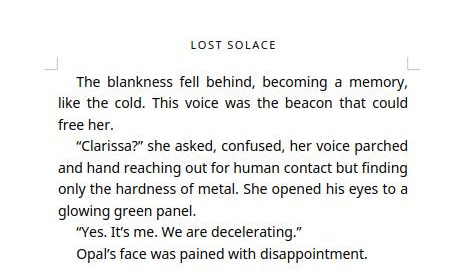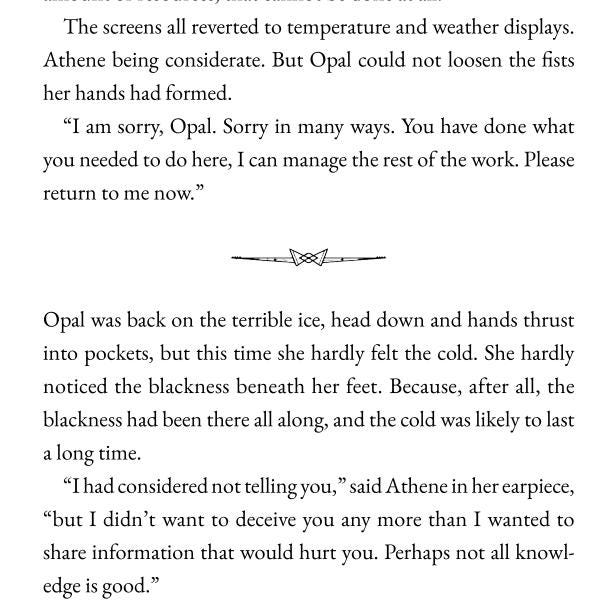Here’s the Weekly Writers Monday post. This post is for paid subscribers only. If you’d like to become one, you get 50% off the annual subscription if you click the button below!
Scene breaks are sometimes referred to as section breaks or text breaks: in fiction, it is common to use a scene break to indicate a change of time, location or viewpoint.
The simplest form is to just have a gap between the final paragraph of the previous section, and the first paragraph of the next.
The first paragraph following a scene break is usually treated the same as the one that opens a chapter: so in most fiction, will be flush left with no indent, followed by an indented paragraph. Like this:
Another system for indicating a scene break is to include a visual element. That may be as simple as blank lines with
* * *
between them, centred, just like that.
Or a fancier symbol can be used (called an ornamental break), such as:
When used in a book, they may look like this:
The symbol can be related to the theme, so a book called “Autumn Leaves” might have a symbol made up of a line of leaves, for example. A horror book might have a smear of blood, a romance might have a soft curve. It could even be an element of the cover imagery.
Keep reading with a 7-day free trial
Subscribe to Karl Drinkwater’s Words & Worlds to keep reading this post and get 7 days of free access to the full post archives.






